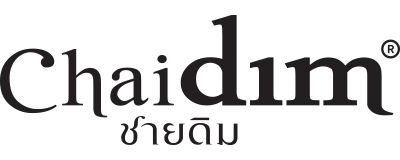
Wellness Rooted in Tradition: Thai and Chinese Teas Reimagined
The Ancient Brews that Nurture Body and Spirit

Across Asia, few traditions are as deeply rooted in the pursuit of wellness as the art of tea. In particular, Thailand and China share a profound relationship with tea—not just as a daily beverage, but as a cultural ritual, a form of medicine, and a philosophy of balanced living.
Ancient Roots: The Beginning of Tea for Healing
In China, tea drinking dates back thousands of years, with legends attributing its discovery to Emperor Shen Nong. Over time, tea evolved from a medicinal herb into a revered part of Traditional Chinese Medicine (TCM), where different types of tea were prescribed to balance yin and yang, promote digestion, boost immunity, and enhance longevity.

Thailand, meanwhile, saw tea spread from its northern regions, particularly among hill tribes like the Akha and Lisu. These communities cultivated tea trees in the misty mountains of Chiang Rai and Chiang Mai, originally for health and ritualistic use. The Thai tea culture naturally blended Chinese traditions with local herbs, creating unique brews tailored for holistic healing.
Key Teas and Their Wellness Benefits

- Oolong Tea www.chaidim.com: Semi-oxidized and prized in both Thailand and China, oolong tea is known for its ability to aid digestion, support weight management, and regulate blood sugar. Its balance of yin-yang energy makes it a favorite for restoring internal harmony.
- Pu-erh Tea www.chaidim.com: A fermented tea from Yunnan, Pu-erh is valued for detoxification, cholesterol reduction, and digestive health. In Thai highlands, Pu-erh cultivation has gained traction, with local versions adding a fresh, earthy touch to the traditional profile.
- Chrysanthemum Tea www.chaidim.com: Popular in both Thai and Chinese herbal traditions, chrysanthemum tea is praised for cooling the body, reducing inflammation, and soothing the eyes.

- Cinnamon Tea www.chaidim.com: Widely used in both Chinese and Thai herbal remedies, cinnamon tea is warming, comforting, and full of antioxidants. It helps stabilize blood sugar, improve circulation, and enhance metabolic health—making it a flavorful, functional choice for wellness seekers.
- Bael Fruit Tea (Matoom) www.chaidim.com: A staple in Thai herbal medicine, bael fruit tea is rich in antioxidants and known for its ability to soothe the digestive system, especially in cases of bloating or constipation. Naturally sweet and calming, it’s often used to restore gut balance and cool internal heat.
- Turmeric Ginger Tea www.chaidim.com: Rooted in Thai traditions, this golden blend is revered for its powerful anti-inflammatory and immune-boosting properties. Turmeric supports joint and liver health, while ginger aids digestion and enhances circulation—making it a warming tonic for holistic vitality.
Tea as Ritual: Mindfulness and Connection
Both Thai and Chinese tea cultures emphasize more than just the physical benefits—tea ceremonies are acts of mindfulness, hospitality, and connection.

In China, the gongfu cha (literally, "making tea with skill") ceremony elevates tea preparation to an art form, encouraging focus, patience, and respect for nature. Similarly, in Thailand, tea drinking often accompanies storytelling, meditation, or quiet reflection, particularly among monks and traditional healers.
The simple act of brewing and savoring a cup becomes a ritual of self-care—a moment to realign mind, body, and spirit.
A Modern Revival: Tea for Today’s Wellness Seekers

Today, wellness enthusiasts worldwide are rediscovering the ancient wisdom behind Thai and Chinese tea traditions. Organic farms in Northern Thailand are producing high-altitude oolongs, while Chinese tea masters continue to share centuries-old brewing techniques. Meanwhile, Thai herbal teas like bael fruit, turmeric, ginger, and cinnamon are gaining global attention for their functional health benefits.
Tea has become a bridge between ancient practices and modern lifestyles, offering a natural, holistic path to wellness in an increasingly fast-paced world.
Explore our curated collection of organic Thai and Chinese wellness teas. Sip tradition. Taste vitality. www.chaidim.com

Leave a comment